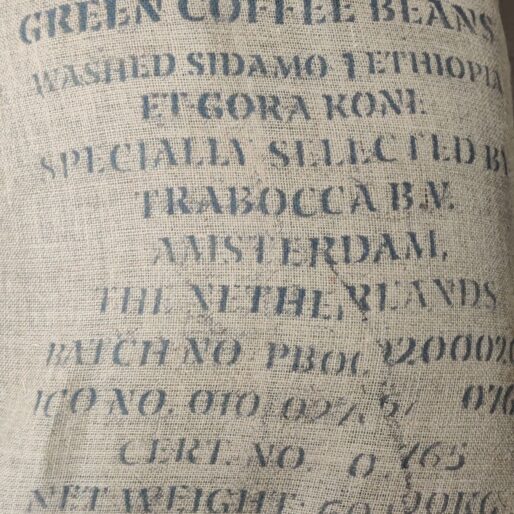Äthiopien Gora Kone
Weitere Infos
If you travel to the south of Ethiopia, you cross the famed Sidama coffee region. Once there, you can either take the road to Yirgacheffe and Guji, or you take the road less traveled to Nensebo, West Arsi. People do not recognize Nensebo as a well-known specialty coffee region. But since the last few years, buyers know that Nensebo offers great coffee potential. We find proof in the 2020 Cup of Excellence Ethiopia where several lots made the international auction. But besides the COE auction coffees, the Gora Kone washing station puts Nensebo on the specialty coffee map as well.
You find the Gora Kone washing station beside the Nensebo river and the village of Werka. It is hard to get there by car because it is a remote spot. But, once there, you are greeted with kindness upon entering the station. Gora Kone sources cherries from 700 to 800 coffee smallholders, but this varies each season. The Nensebo smallholders all own plots no larger than 3-hectares. If you visit a smallholders’ farm, you will find the trees well covered by wanza and acacia trees. Shade growing coffee is a natural practice that many farmers adopt without question.
The Gora Kone washing station processes both washed and natural coffees. At arrival, station workers pulp and ferment the coffees in large water bins for 42 to 46 hours. Then, they refresh the water every 12 hours until the parchment is ready for drying. But before being placed on the drying beds, the workers wash the parchment with water from the Gerenbicho river, an affluent of the Nensebo river. Drying the parchment takes 10 to 12 days. After this, the station workers pack the coffees and lay them to ‘rest’ for a period of 30-days. The naturals dry in the Nensebo sun for 15 to 18 days.
Reviews
helle Röstung
Besonders für Filterkaffees im „Handaufbrüh“-Verfahren geeignet. Für Experimentierfreudige aber durchaus auch als Espresso spannend. Ergibt säurebetonte, fruchtintensive Kaffees.
Die helle Filter-Röstung ist eine besonders kurze Röstung von 9 bis 10:30 Minuten. Diese Röstung wenden wir nur bei unseren Specialty-Kaffees an. Sie bringt sehr feine, filigrane und überraschende Aromen zum Vorschein. Die Fruchtigkeit der Kaffees steht dabei immer Vordergrund.

There are no reviews yet.